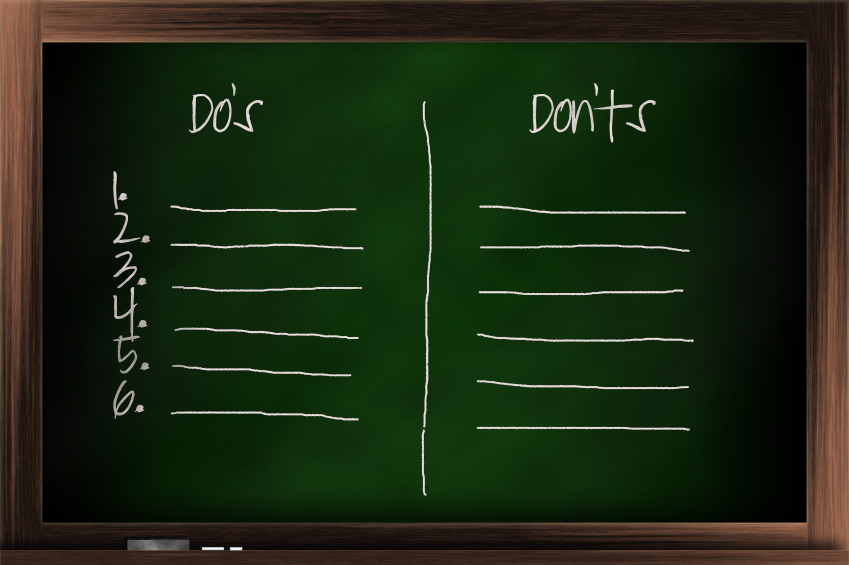The Do’s and Don’ts of Trial Testimony
Written by: Tracy Augustin
I want to give you some Do’s and Don’ts of Trial Testimony because testifying at a trial can be nerve-racking even for people with nerves of steel. And, testifying at a trial which will determine you and your children’s future, can up the ante even more. Why?
Well, the answer is simple: the environment in which you are “testifying” about YOUR LIFE is completely artificial. Think of trial testimony as a job interview…on crack. Not only that, but in Family Law trials, the stakes are high! When else are you put into a situation where you must discuss the intimate details of your family in front of complete strangers and then “ask” one of them to decide your fate?

Want some do’s and don’ts about trial testimony?
To help ease your fears about testifying at your upcoming trial or hearing, here are our Do’s and Don’ts of Trial Testimony:
Tip #1
· DO → Listen! Wait for the whole question. Pause at least 3 seconds. Then respond to the question being asked.
· DON’T → Answer over or interrupt your own attorney or opposing counsel.
· Why?
o The trial record is being preserved either by a Court Reporter or by AV recording. If you interrupt someone who is also speaking, there may be confusion in the record as to who is making the statement.
o Waiting a few seconds after a question will give your attorney the opportunity to object. Nothing is more frustrating than when a client answers a question that they would not have had to answer if there had only been time to object.
o There is a high likelihood that if you jump the gun and answer a question prematurely, you will share more info than you need to share. That’s a no-no!
Tip #2
· DO → Answer truthfully!
· DON’T → LIE!!!
· Why?
o This one seems obvious, right? Prior to giving any testimony in court you will be sworn in and promise to tell “the truth, the whole truth, and nothing but the truth.” That sounds simple, and I’m not saying that it’s not. It’s not difficult to tell the truth. I’m just reminding you…nicely…to always tell the truth.
If you lie on the stand and the other side catches you in a lie, they will not be so nice about it. They will call out your lies through impeachment. Depending on how big your lie is, you could criminally charged with perjury. Even if your lie does not amount to perjury in the eyes of the Family Court judge, you may be opening the door to an award of attorney’s fees and costs to your opponent.
Tip #3
· DO → Maintain a poker face. Try and look cool, calm and collected on the witness stand…even during cross-examination.
· DON’T → Let your expressions betray you, but more importantly, your case!
· Why?
o Yes, you can be emotional on the witness stand, but don’t let your emotions drive your testimony. If you are sad, take a second and gather your thoughts and emotions. Then proceed with your testimony. Remember, in most cases we only have a few precious hours for trial, and taking 20 minutes out of a 3 hour trial to gather yourself is time you’ll never get back in front of the Judge.
o Even if you are not the one on the witness stand, the Judge may be observing you! I have seen judges berate the parties for wearing emotions on their sleeve. (And so you’re clear, the emotions I am talking about WEREN’T tears. Tears are OK. I am talking about eye-rolling, heavy sighs and disgusted looks.) Wearing your heart on your sleeve is distracting for everyone, including the Judge.
o Even if you think you are a calm individual, you just might react out of character under the pressure of the situation. Even if you are the kindest, nicest, Mr. Rogers-type character, you could surprise even yourself, wanting to act hostile in some of the worst ways to the other party or attorney. During cross-examination, do not ask questions to answer a question or, even worse, get über defensive about your positions. Judges are smart and they will pick up on this!
Tip #4
· DO → KNOW YOUR CASE
· DON’T → Come to Court not knowing the facts of your case and your positions on the issues.
· Why?
o PLEASE, PLEASE, PLEASE know your own case! I beg of you! This is your life that you need to be ready to testify about. It’s never a good sign when I know my client’s case and positions better than he or she does. If you change your position on the stand, the judge may decide not to give your testimony much weight.
o Going to trial with an attorney usually means you are spending mucho dinero, so please take your case seriously. By hiring an attorney, you are making an investment in your case, and in Family Court, this can mean an investment in your LIFE! Please don’t waste your money by coming to Court on the day of trial not knowing your own positions on the issues.
o Of course, it is my job as your attorney to help make sure you know your case. Your case will have a theme, and we will discuss it at great lengths BEFORE TRIAL. We will also practice the questions. I will ask questions that the other attorney might ask of you. I may also give you homework before trial. DO YOUR HOMEWORK!
Keep these Do’s and Don’ts of Trial Testimony in mind as you head to court. As your attorneys, we will do our best to make sure you do your best on the witness stand, but remember, we can’t take the stand for you…so break a leg!


